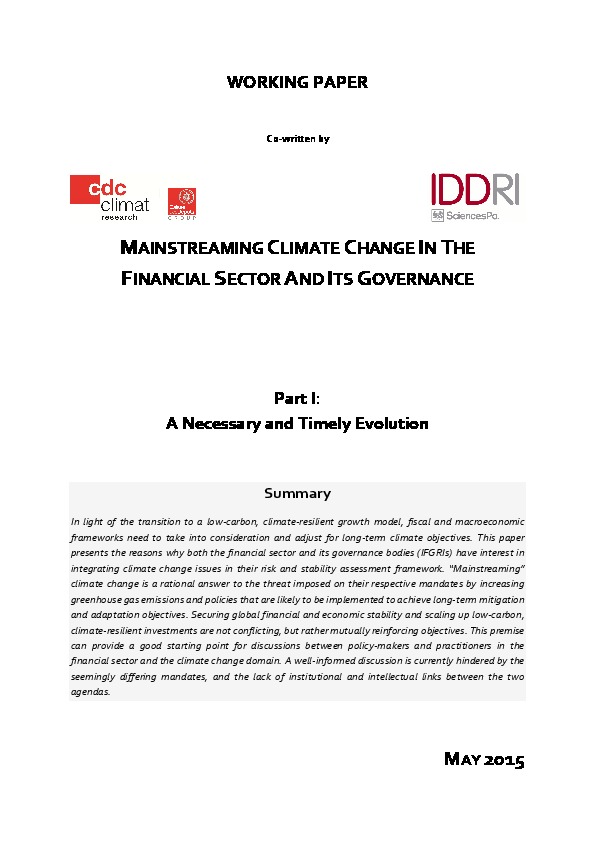Mainstreaming Climate Change in the Financial Sector and its Governance – Part I: A Necessary and Timely Evolution
A joint working paper with the Institute for Sustainable Development and International Relations (IDDRI)
By Romain Morel (I4CE), Sani Zou (IDDRI), Ian Cochran (I4CE), Thomas Spencer (IDDRI)
This working paper is the first one of a series of studies on Mainstreaming Climate Change in the Financial Sector and its Governance.
Part I: A Necessary and Timely Evolution
In light of the transition to a low-carbon, climate-resilient growth model, fiscal and macroeconomic frameworks need to take into consideration and adjust for long-term climate objectives. This paper presents the reasons why both the financial sector and its governance bodies (IFGRIs) have interest in integrating climate change issues in their risk and stability assessment framework. “Mainstreaming” climate change is a rational answer to the threat imposed on their respective mandates by increasing greenhouse gas emissions and policies that are likely to be implemented to achieve long-term mitigation and adaptation objectives. Securing global financial and economic stability and scaling up low-carbon, climate-resilient investments are not conflicting, but rather mutually reinforcing objectives. This premise can provide a good starting point for discussions between policy-makers and practitioners in the financial sector and the climate change domain. A well-informed discussion is currently hindered by the seemingly differing mandates, and the lack of institutional and intellectual links between the two agendas.
The second publication in this series can be found at: Part II: Identifying Opportunity Windows
A policy brief entitled “Mainstreaming Climate Change into financial governance: rationale and entry points” is published by the Centre for International Governance Innovation (CIGI). https://www.cigionline.org/
The authors welcome further comments and reviews by technical experts, which should be sent to the corresponding authors: romain.morel@i4ce.org; sani.zou@iddri.org; ian.cochran@i4ce.org; thomas.spencer@iddri.org
